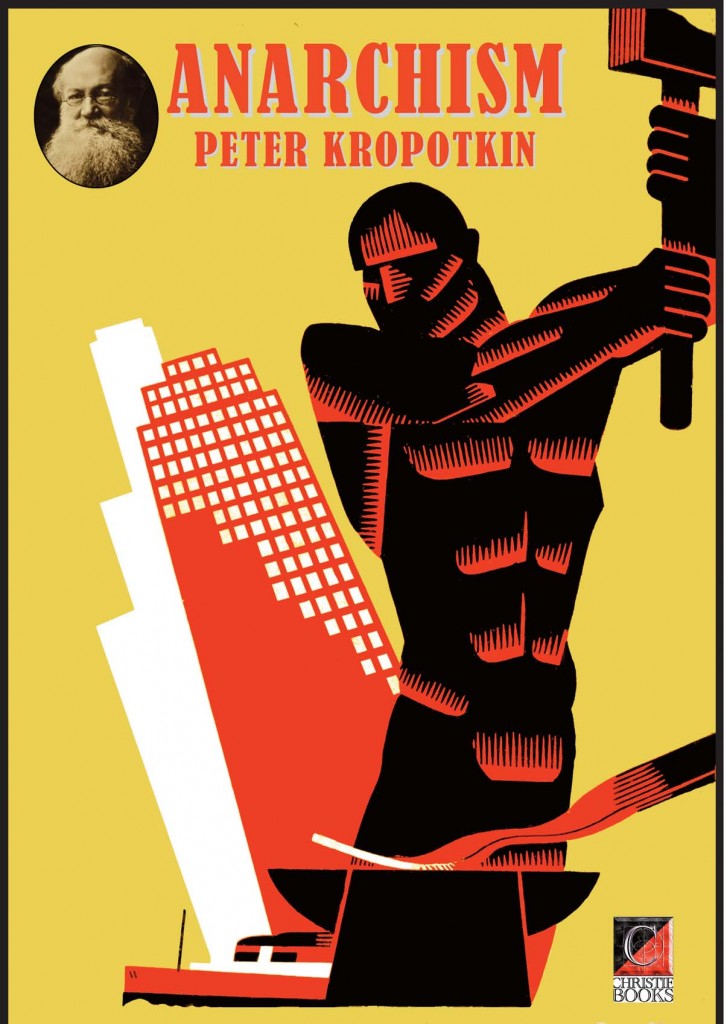 Kropotkin’s entry on ‘anarchism’ for the 11th edition of the Encyclopaedia Britannica (1910). £1.00/€1.30 (see eBookshelf ). Also available on Kobo
Kropotkin’s entry on ‘anarchism’ for the 11th edition of the Encyclopaedia Britannica (1910). £1.00/€1.30 (see eBookshelf ). Also available on Kobo
Anarchism is “the name given to a principle or theory of life and conduct under which society is conceived without government – harmony in such a society being obtained, not by submission to law, or by obedience to any authority, but by free agreements concluded between the various groups, territorial and professional, freely constituted for the sake of production and consumption, as also for the satisfaction of the infinite variety of needs and aspirations of a civilized being.”
“ANARCHISM (from the Gr…., and …., contrary to authority), the name given to a principle or theory of life and conduct under which society is conceived without government – harmony in such a society being obtained, not by submission to law, or by obedience to any authority, but by free agreements concluded between the various groups, territorial and professional, freely constituted for the sake of production and consumption, as also for the satisfaction of the infinite variety of needs and aspirations of a civilized being. In a society developed on these lines, the voluntary associations which already now begin to cover all the fields of human activity would take a still greater extension so as to substitute themselves for the state in all its functions. They would represent an interwoven network, composed of an infinite variety of groups and federations of all sizes and degrees, local, regional, national and international temporary or more or less permanent – for all possible purposes: production, consumption and exchange, communications, sanitary arrangements, education, mutual protection, defence of the territory, and so on; and, on the other side, for the satisfaction of an ever-increasing number of scientific, artistic, literary and sociable needs. Moreover, such a society would represent nothing immutable. On the contrary – as is seen in organic life at large – harmony would (it is contended) result from an ever-changing adjustment and readjustment of equilibrium between the multitudes of forces and influences, and this adjustment would be the easier to obtain as none of the forces would enjoy a special protection from the state.
Continue reading »
 eBook £1.50/€2.00 (see eBookshelf ). Also available from Kindle and Kobo
eBook £1.50/€2.00 (see eBookshelf ). Also available from Kindle and Kobo













